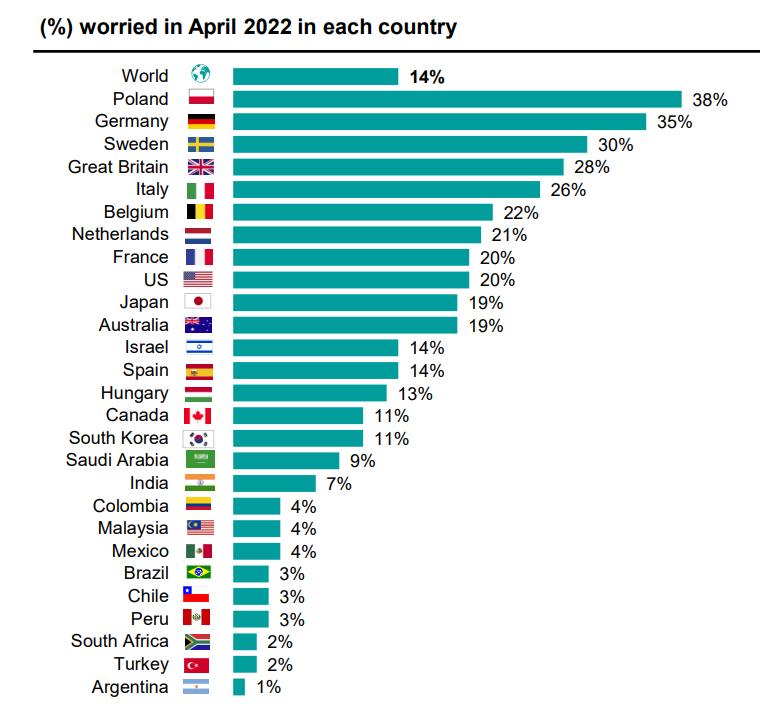Маніпуляція One of the world's leading market research companies has proven that the world doesn't care about the war in Ukraine.
Citing the results of an Ipsos study called "Worrying the World," anonymous telegram feeds write that the problem of war in Ukraine is only 11th in the rankings, with war-induced inflation at the top. The manipulation is based on several points.
First, the study, which has been conducted for years using the same methodology in 27 countries, reports that the item "War Between the Nations" did not exist before and was introduced because of the war in Ukraine.
Second, countries in Europe and the U.S. are in the top 50 of those who care about the war in Ukraine. South American and African countries express 1-2% concern, which is natural given the geopolitical features of the world. "Concern is greatest in Europe. Poland has the highest level of worry, with four in ten (38%) saying it is one of the biggest problems in the country. Other countries show high levels of worry: Germany (35%), Sweden (30%), Britain (28%), and Italy (26%). There is less anxiety in Latin America," the study said. It also noted that in none of the countries respondents named war as their main concern, but in Germany the figure is only 2 points behind inflation, which was among the biggest worries. Instead, according to a local Ipsos survey in Denmark, which is not part of the Worrying World rating, in March, war in Ukraine was second with 30 percent, and climate change was first. In April, both problems topped the rating; only the numbers changed. Instead, according to a local Ipsos survey in Denmark, which is not part of the Worrying World rating, in March, war in Ukraine was second with 30 percent, and climate change was first. In April, both problems topped the rating; only the numbers changed.
Third, according to the study, inflation was among the top five global concerns in March for the first time since January 2013. The global rate in March was 32%, although at the beginning of the year it was 20%. Argentina takes it the most - 64%, where the war in Ukraine worries 1%.


